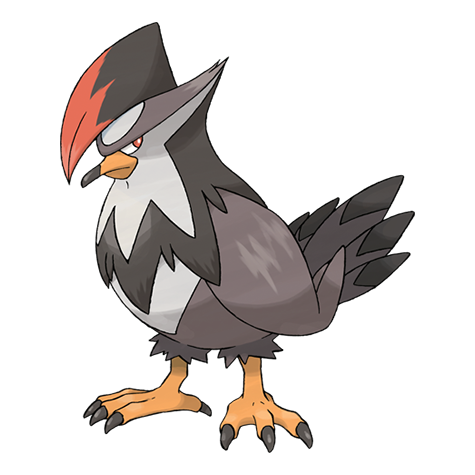I heard something to do with Nitrogen and …cow farts(?) I am really unsure of this and would like to learn more.
Answer -
4 Parts
- Ethical reason for consuming animals
- Methane produced by cows are a harmful greenhouse gas which is contributing to our current climate crisis
- Health Reasons - there is convincing evidence that processed meats cause cancer
- it takes a lot more calories of plant food to produce the calories we would consume from the meat.
Details about the answers are in the comments


Because if something is not sentient it cannot have negative experiences, so it can’t be harmed.
so?
The question was “why is eating meat bad?”, my answer is something like “because to have meat you must harm animals”, and someone answered that “we always harm something when we eat” and my answer is “no, there are foods that you can’t harm because they are not sentient”.
first, you can’t prove plants aren’t sentient. second even if you could, why should sentience matter? what ethical system even accounts for sentience as a factor of right behavior?
And you can’t prove something is sentient. But scientists have criteria that help determine whether a species is sentient. See this review for example.
I already answered. If something can’t be harmed there no need to prevent harming it.
About all animal welfare:
i don’t really like your use of harm here to exclude everything but sentient beings, but as a term of art, for the purposes of this discussion, i will indulge you.
why does it matter if something CAN be harmed? what creates a duty to NOT HARM something?
About all ethics is about reducing harm. If you don’t know that harming is bad I don’t think we can have a discussion.
deontological ethics are explicitly not about that. divine command theory is unconcerned with that. can you name an ethical system that does concern itself with that?
I guess it depends on the philosopher, but at least one includes “doing no harm” in the obligations[1]:
Probably all consequentialism and at least utilitarianism (harm decreases the global well being). Negative consequentialism is more specifically focused on reducing suffering/harm.
Even if plants were sentient, and I’m not saying they are, but if. Would you rather “kill” orders of magnitude more plants to feed them to animals, then kill the animals and eat them, or would you kill the plants and eat them directly? One of them causes a lot less harm (if any at all), and it’s not eating the animals.
well, first, animals are mostly fed plants or parts of plants that people can’t or won’t eat, so the scale of the difference you described is orders of magnitude less than you are suggesting.
but, more importantly, why should sentience matter?
finally, whether i buy food from a shelf or not, the creature (flora or fauna) it came from is already harmed, and my purchase causes no more harm to it, so eating it has exactly no impact.
Those plants still have to be cultivated. If there are no animals to feed those plants to (for instance, low quality corn or low quality soy), the lane can be used for cultivating food for humans or in the case of low quality soy, the rain forest doesn’t have to be mowed down for it. Sentience matters because ideally, one should strive to reduce harm as much as possible. Especially unnecessary harm. There is a reason why I don’t torture cats and dogs for fun, and it’s the same reason I don’t eat killed and tortured cows, pigs, chickens, etc. just because I like the flavour of them. And of course your purchasing behaviour has impact on the amount of harm caused. Maybe not instantaneously, because it is indeed on the shelves already, but just like with voting in elections, if you don’t buy products that cause harm, demand drops ever so slightly. Then when more people inevitably follow, demand drops further in a big enough quantity to matter. That’s why you see a lot more vegetarian or vegan options in your supermarket today: because people buy them.
there are more vegetarian options and even more meat is produced now than ever before. the production hasn’t dropped.
That’s rather unfortunate…
why should reducing harm be a goal? suggesting that eating meat is equivalent to torturing animals for fun is totally specious: almost everyone eats meat, almost no one tortures animals.
Meat doesn’t grow on trees, let’s be honest here. There’s plenty of articles, videos, and other evidence online and offline that livestock aren’t exactly treated well. Maybe they’re nice at some farms, but they still get herded into cramped trucks, then disgracefully manhandled in slaughterhouses. Personally, I don’t like to cause people and other living things harm, simply because I feel like being nice is the better option. I believe that doesn’t have to stop at humans and pets.
the soy fed to livestock is almost entirely the industrial waste from making soybean oil.
Fair enough, it seems like it is waste from soybean oil most of the time. However, it does make me wonder why such an enormous amount of soy is cultivated. >75% is used for animal feed (and oil, indeed). (source). I wonder if it’s a similar situation as with corn in the US and the resulting use of HFCS.
how do you know what is necessary for other people?
I don’t. But I do know that the human body can survive, even thrive, perfectly fine without the consumption of animal products. That’s nutrients, not taste preferences, of course. I also like to think that the vast majority of people don’t like harming animals, at least not consciously. I hope I’m not wrong in thinking that.